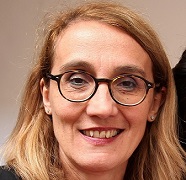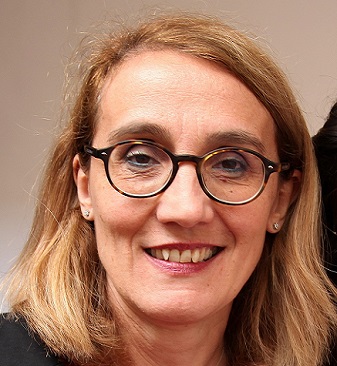
A new hydrogel has been created thanks to a scientific collaboration between the BioRobotics Institute of the Scuola Superiore Sant'Anna and the Rizzoli Orthopaedics Institute. It is a double-layer hydrogel that mimics the characteristics of articular cartilage and allows to restore its natural properties in areas where the tissue has degenerated.
The discovery (presented in a study published in the international journal Advanced Healthcare Materials) was made with the aim of defining a possible intervention strategy for solving joint problems affecting the knee through the use of a functional material to regain the mechanical and lubricating properties of articular cartilage damaged by trauma or osteoarthritis.
"The hydrogel we have developed consists of two layers: the first mimics the mechanical and lubricating characteristics of the surface area of human cartilage; the second reproduces the mechanical characteristics of knee cartilage. The hydrogel has no cells (chondrocytes or stem cells), but it can be considered as an acellular synthetic substitute”, Diego Trucco, first author of the study and PhD at the BioRobotics Institute, said.
The researchers' idea is to sequentially inject the two hydrogels using minimally invasive surgical techniques, such as arthroscopy. Another feasible way is to make up the hydrogels 'externally' and implant them surgically, exactly replacing the damaged area of tissue.
Currently, two very important validation tests have been carried out thanks to the support of the Rizzoli Orthopaedic Institute: the analysis of the cytotoxicity of the materials with the main cartilage cells, the chondrocytes, and the validation of the material properties by using a knee simulator being able to simulate the daily activity of a person. The tests carried out so far have been successful. However, further pre-clinical tests will have to be performed before a possible validation of the material can be considered at the clinical trial level .
"The study is part of the research activity carried out within the European project H2020 ADMAIORA. It was born as a strategy parallel to the main focus of the project, centered on a purely regenerative approach based on enabling technologies such as ultrasound", Lorenzo Vannozzi, project manager of the BioRobotics Institute, explained. "The close collaboration between different professional figures (such as engineers, biologists, physicists) has been fundamental to achieve important results. This approach, which characterises the whole ADMAIORA project on which the IOR and the Scuola Superiore Sant'Anna are working, is important in the transfer of results from the laboratories to the clinic", said Gina Lisignoli, Biologist manager at the Laboratory of Immunoreumatology and Tissue Regeneration of the Rizzoli Institute.
"The close collaboration between different professional figures (such as engineers, biologists, physicists) has been fundamental to achieve important results. This approach, which characterises the whole ADMAIORA project on which the IOR and the Scuola Superiore Sant'Anna are working, is important in the transfer of results from the laboratories to the clinic", said Gina Lisignoli, Biologist manager at the Laboratory of Immunoreumatology and Tissue Regeneration of the Rizzoli Institute.
"This result joins other interesting discoveries we are making in the ADMAIORA project. We are confident that this and other technologies can become a clinical reality within a few years", Leonardo Ricotti, head of the Regenerative Technologies Lab at the BioRobotics Institute, said.


